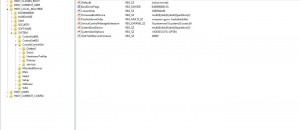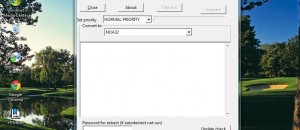SOPA and PIPA are dead. But anti-piracy measures by the entertainment industry are not. In collaboration with big entertainment, internet service providers (ISPs) in the United States will soon be implementing significant anti-piracy measures across their entire subscriber base. Two of the largest ISPs in the US, Time Warner and Verizon, plan to use a system dubbed the “six strikes” anti-piracy program.
The “six strikes” anti-piracy program is an initiative by ISPs to try to curb illegal file sharing by their customers. It is important to note that the ISPs won’t be tracking customer internet activity per se, but rather will know a customer is pirating if their IP address has been recorded as taking part in peer-to-peer torrenting of copyrighted content (you won’t get in trouble for torrenting free or open source content). The program is designed to alert customer in phases, rather than the old way of “let’s send them a notice that they pirated something and ask for money to avoid a lawsuit” that we’ve seen in the past years.
The first of these phases is the “notice” phase, in which notifications are sent to the customer regarding the allegations of illegal activity with copyrighted files. Notifications can be via telephone and e-mail, but may be snail mail too depending on your ISP.
The second, which is the “acknowledgement” phase, forces the user to respond to these allegations through a pop-up window of some sort, to make sure that “they’re getting to the right people”. Using a positive confirmation method makes sense, because, as Verizon VP Link Hoewing notes, that there are potential situations wherein five people could be sharing an internet connection, and the person guilty of copyright infringement isn’t necessarily the account holder.
The last of the “six strikes” anti-piracy program is the third stage (why is it “six” strikes if there are only three stages?), the “mitigation” phase. This is the part where subscribers actually have to face the consequences of engaging in online piracy. Fortunately for consumers, this stage doesn’t end with people being sued. But for heavy internet users, it could be just as bad. Verizon subscribers will see their speeds throttled for around two to three days, albeit with a 14-day notice before the speed decrease actually starts. Time Warner subscribers, however, will have people screaming net neutrality all over again because “popular websites” will be blocked for alleged infringers This is how Fernando Laguarda, Time Warner VP, puts it:
We’re constructing a soft landing area, where the customer is restricted in the type of browsing that they can do. If they appeal, all those measures are suspended pending the appeal.
So if Time Warner users appeal (and pay a fine), they can get their service restored. Much better than being sued outright, that’s for sure, but still feels like ransom.
Interestingly enough, the entertainment industry is looking at this as an education mechanism rather than a litigation tool. Ron Wheeler, a senior VP at Fox Broadcasting, says:
This is not about suing users at all. This system is not designed to produce lawsuits—it’s designed to produce education.
While currently Verizon and Time Warner are the big two to take part in this program, soon we could see other ISPs participating as well. Seeing as ISPs have elbow-room as to how they enforce the program (the enforcement fo the program is not legally binding but rather is an agreement between ISPs and entertainment companies), before we know it we may have different versions of the six strikes program floating around.
Personally speaking, while I’m not a fan of measures like this, this actually seems fair if you think about it. I mean you are warned twice before you have to actually face the consequences (aka you can clarify misunderstandings prior to the third phase), and the consequences you do face are significantly better than the legal extortion that has been going on for years. However, while Verizon’s “punishment” is sensible, Time Warner is going a bit far by determining which sites you can and cannot visit when you’re the under the mitigation phase.
What do you think? Is this the way to “educate” people about piracy? Do you have better ideas? Hit up the comments to let us know!
[via ArsTechnica]

 Email article
Email article




